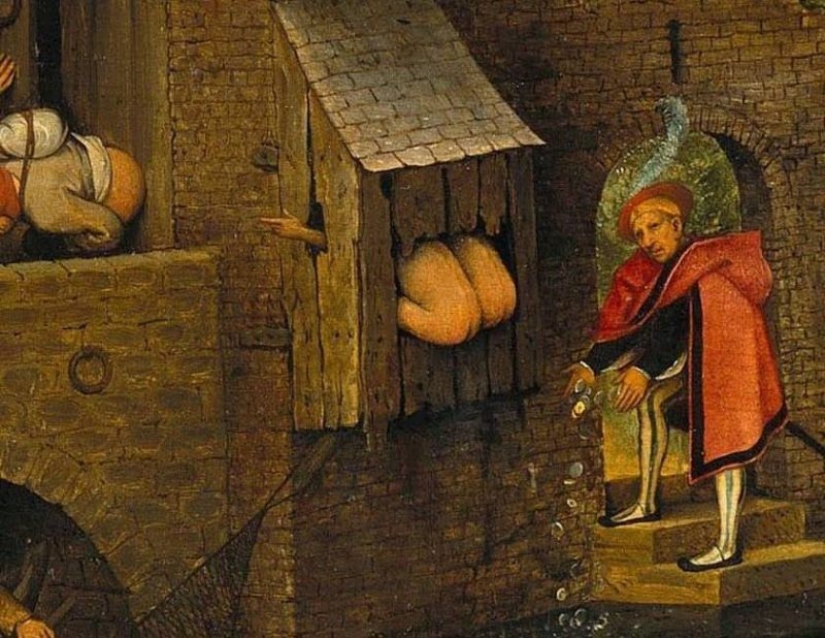Like a wild people in Germany were accustomed to the vaunted German order
Categories: Europe | History | Nations
By Pictolic https://pictolic.com/article/like-a-wild-people-in-germany-were-accustomed-to-the-vaunted-german-order.htmlIt is known that the Germans are the most prone to the order and discipline nation on the planet. But, on the other hand, everyone knows what a mess and unsanitary conditions prevailed in the streets of medieval Europe, including in Germany. So when the Germans became of the people that spills from the Windows on the heads of passers-by slop in neat and meticulous?

As love of cleanliness and order the inhabitants of Germany was not innate, it had to instill under the guidance of a progressive ruler. It all started in the South-Western part of the country, which was called Swabia. In the XV century, the Governor of the region, count of Württemberg, suddenly realized that this can not go on.
Its fairly densely populated land turned into a real stinking cesspool. The Germans of that time didn't care much about sanitation and aesthetics and dumped rubbish "overboard." In the cities all the waste flew out the window, and in the countryside, in the best case, threw over the fence.
The villages and towns of Swabia was a depressing spectacle — they were littered with stinking piles of garbage, which was crawling bold and brazen rats. In such an environment, the epidemic broke out, one by one, and wiped out thousands of people, but none was associated with health communities, all translating into "God's plan".

Ulrich V, count of Württemberg
Count of Württemberg started with a special decree ordered the inhabitants of the villages and towns to take out the garbage outside the village, or at least to throw into the nearest river. Ought to do it at night so as not to interfere with the traffic in the narrow streets and roads. Of course, no one thought to execute the decree and everything remained as it was.

Then the count thought it over and finally found out. He issued a new decree according to which the responsibility for the cleanliness made a General. The idea was the following: if your neighbor a couple of weeks no garbage collection or throws it right at the gate, punished solid fine will not only he, but also you.
And in that case, if you told a neighbor, but unable not only to avoid punishment, but also to claim a portion of his land, which he so non-farming uses. The result was seen very quickly, because now every Saturday pointedly removed the debris around the house, for fear of the neighbors of informers.
Today, count of württemberg method can be viewed as a promotion of denunciation and encroachment on personal freedom, but do not forget that it was in the Middle ages. Moreover, like it or not, the method was effective and has spread from Swabia other lands of Germany. Tradition "Kehrwoche", i.e. "a week of harvest", when the German carefully tidy your home, a staircase or a backyard plot originates from the wise decree of the graph.
Keywords: Germany | Hygiene | Dirt | Debris | Germans | And order in the middle ages | Cleaning | Clean
Post News ArticleRecent articles

Near the Italian town of Saturnia is a fabulously beautiful place, where geothermal springs form a warm waterfall Cascate del ...

Extreme recreation can be different. For some, extreme is to eat dried spiders in Cambodia, some like to hang around on the roofs ...
Related articles

In the Late middle Ages, when the life expectancy of ordinary people ranged from 25 to 40 years, the Templars often overcame age ...

For all lovers of fairy tales and beautiful views of our planet, the German photographer Kilian Schonberger has created a series of ...

Surrealism is fascinating mystery their images and symbols. The art of the surreal photos by Franz Fiedler surprises and delights ...

Previously, the principle of "an eye for an eye, a tooth for a tooth" was an integral part of many cultures. But in our days there ...